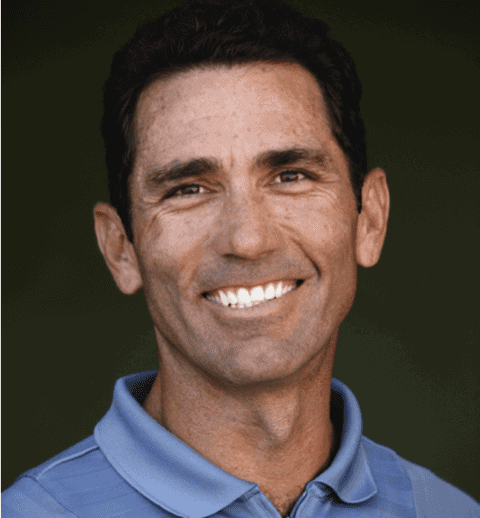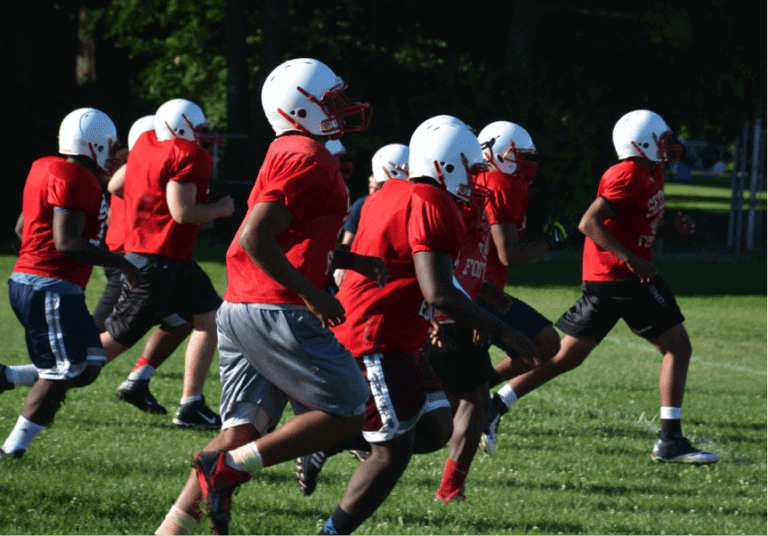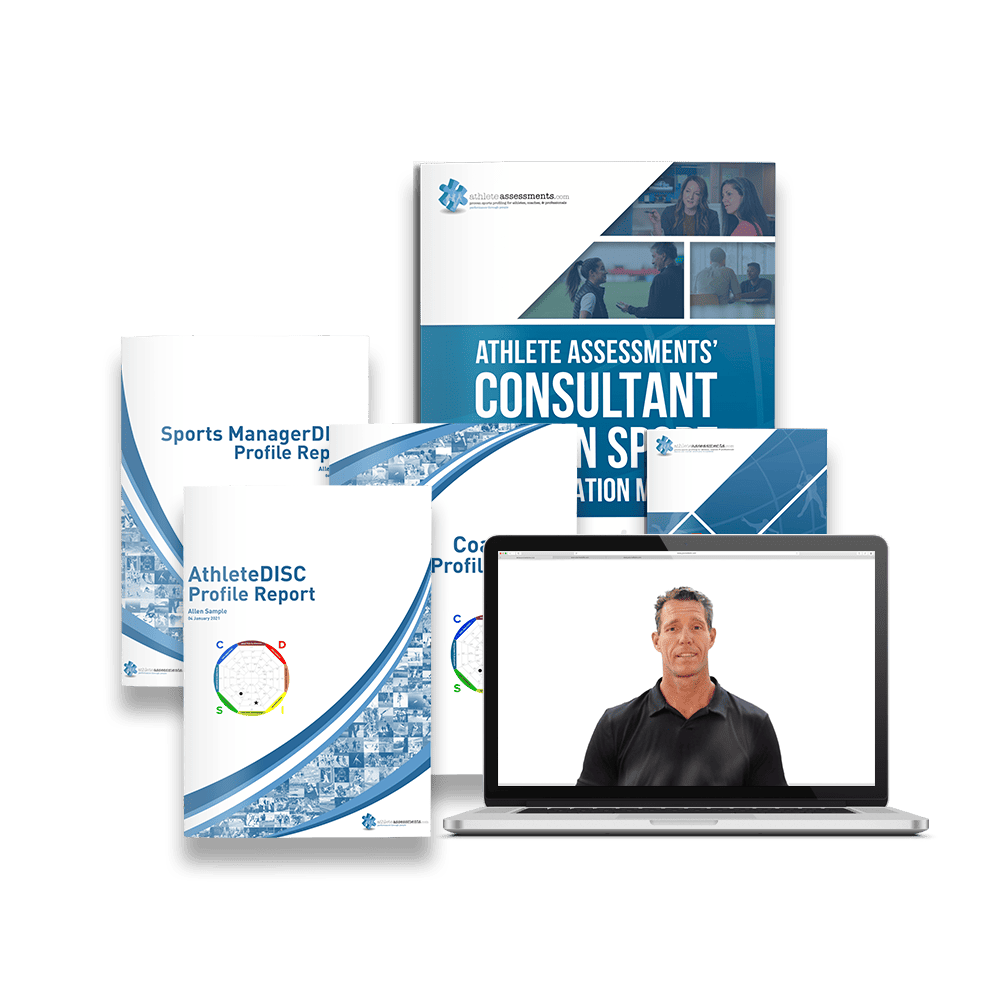What makes a person excel in their role? The question came to mind as we spoke to the man with 35 years in the game of people development and performance in sport.
Depending on who they need him to work with, people call Jeff Troesch a Mental Performance Coach, Performance Specialist, Sport Psychologist, or Mental Training Expert, just to name a few of his titles. Jeff has worked with us for quite a few years now and what started as an update on our previous article, turned into a valuable insight into how his work opens a window into developing a deeper understanding of the way athletes improve their performance.
Currently, Jeff works with 29 Division One teams across seven different universities, with both athletes and coaches, plus his private clientele of professional, elite, and amateur athletes spread all over the globe. In his 35 years of practice, Jeff has never had a website or promoted his services, instead, new clients hear about the quality of his work through recommendations, referrals, and word of mouth. His huge client base coupled with his work ethic, sees Jeff working seven days most weeks, which he shared he does happily.
Curious to hear more about Jeff’s work with such a broad spectrum of clients, we asked him what a typical day looks like in his world. Assuring us that no two days are ever the same, Jeff shared that most often he starts his day connecting with clients in Europe, before working his way up the east coast of the United States, then moving as far west as Hawaii before sundown. He added,
“It’s like that day after day, I bounce between athletes, coaches, and teams, face-to-face or via zoom in the venue the team is practicing in, observing practice, being with athletes on the bench, in the dugout, and during competition.”
Jeff shared that while he works with a variety of athletes and coaches, he finds his work most rewarding with,
“Clients between the ages of 18 and 22, I’m fine with younger and I enjoy older, but I really love that age group. Professionally, I enjoy working alongside young men and women as they’re trying to figure themselves out as people and they are developing within their sport, that can be really exciting.”
Whether working with athletes and coaches one-on-one, or with a whole team, one of the tools that Jeff uses to help his clients develop is Athlete Assessments’ DISC Profiles. The 40-page reports provide an individual with an opportunity to better understand themselves by detailing their preferred and non-preferred behaviors, the way they communicate, build relationships, their strengths, and how they are likely to act when under stress.
Athlete Assessments’ DISC Profiles are based on behavior not personality and Jeff draws on this distinction, using it to enable and facilitate personal integrity in choosing different behaviors. He explained,
“DISC frees a lot of athletes up to see adapting, or consciously choosing different behaviors, as an alternative and a possibility instead of using their personality as an excuse or a rationale behind why they don’t behave as their role demands.”
“One of my foundational philosophies is that there is no right way to do anything. There’s only an effective way to do things, and it’s my job to work alongside the athlete to figure out what is going to be most effective for them. In my experience, it is not the strongest athletes that win, it’s the most adaptable. Those who have the ability to manage variability best are the athletes who over time, are the most successful.”
Jeff briefly reflected on how came to learn this himself, from being involved with world #1 ranked athletes in tennis, golf, and other sports and observing the way they did things differently, using processes that may not have been ‘by the book’,
“I was watching the absolute best in the world do things that are completely contrary to what I’d been taught in my professional training and winning with those techniques. Once I allowed myself that flexibility in my own thinking, it really opened up this Pandora’s box of options and opportunities in sport and in life.”
Jeff translates this strength in adapting into critical skills for his clients, sharing techniques and tools which enable alternative understandings of behavior. He shared the way that Athlete Assessments’ DISC Profiles allow him to explain how people process things differently,
“In my experience coaches have a tendency to label their athletes, or presume based on an observed behavior, that there’s a particular intention behind it, DISC helps clarify those misunderstandings.”
Jeff explained the way he encourages coaches to find avenues to apply DISC every day to align their approach to coaching to the needs of their team,
“Many of my coaching clients have bought in deeply to the concept of DISC because it benefits their coaching effectiveness. We now speak the language of DISC constantly when we’re talking about athlete-to-athlete interaction or coach-athlete communication.”
He shared an example of a volleyball team he works with that has a lot of natural ‘I’s but their coach is a high ‘C’. Typically, ‘C’s are detail--orientated, driven by facts and data, and are more indirect in their communication. Diagonally opposite them on the quadrant are the ‘I’s who usually bring energy into the team environment, while in play they bring creativity, spontaneity, and pace. Through the undertaking of DISC, the coach recognized the major differences in their style and implemented a strategy called ‘I-Time’, which allows players to request a 5-minute break where everyone who wants to talk with one another can, and then it’s back to practice following the coach’s planned training schedule.
He added,
“These were areas where initially it was really difficult to understand one another but getting people from a position of tolerating one another to truly valuing the difference they bring makes a huge difference.”
Jeff has had the ability to connect and build relationships with people since he was 12, sharing that as a young athlete, coaches always looked to him to get through to players they couldn’t connect with. That thread of speaking the language that athletes understand has stayed with Jeff throughout his career, and with a degree in business and marketing he was hired by an NBA franchise at just 21 as a PR Director. The role saw him traveling with the team, working alongside athletes and they used him in an informal capacity to help them manage their performance and their lives. Attaining extra qualifications, he got involved with establishing the NBA’s rookie transition program and worked in the local community. Jeff’s signature style speaks to the depth and quality of his relationships with athletes, and it’s those relationships that translate to the demand for his skills that we see today.
He shared,
“One of the things that I’m most proud of, is that athletes feedback to me that they feel like they are my only clients and when I’m with them I am really with them and engaged.”
Jeff concluded that satisfaction at the end of each session, whether half an hour, an hour, or a day in length, comes if he has helped someone improve the quality of their life, performance, or relationships. Jeff’s foundational philosophy is ‘Get One Day Better Every Day’. He qualifies that with an insistence that each individual understands what one day better means for them and knows what they have to do in that session or at that practice to achieve their goal.
Where to from here?
If, like Jeff, you are a mental performance consultant or people rely on you to bring up-to-date, reliable, and tested tools to develop a competitive edge which keeps them ahead of their field, we encourage you to take a look at our Consultant DISC Accreditation Program. Many of our articles detail the ways our clients use Athlete Assessments DISC Profiles. If these articles give rise to any questions for you, just reach out and contact us, we would love to help you be your best!

Biography for Jeff Troesch
Jeff Troesch has been a Mental Performance Specialist at the professional, elite, amateur, and collegiate levels since 1987, and has served in that role for several programs. With nearly 36 years’ experience, Jeff began his career after achieving his advanced degree from Washington State as a consultant with the NBA. He then went on to assist the Seattle Mariners and Detroit Tigers in Major League Baseball, the U.S. Soccer Federation, IMG Academies in Bradenton, Fla. and numerous touring golf and tennis pros. Furthermore, Jeff has worked with student-athletes at various of major universities, including UCLA, Cal, and Stanford. Jeff’s roles within each program may vary, but his approaches to team building, ongoing team consultation, individual athlete consultation regarding mental conditioning and performance enhancement, and coach development remain one of most applied and effective in the sports industry.
Recommended Articles
The coach-athlete relationship, a research backed non-negotiable when it comes to getting the best and sustained performance out of your athletes.
DISC’s primary purpose is developing self-awareness and providing a framework to understand, then build effective relationships with others. Why is this important? Because in sport, what differentiates the best is never just physical or technical ability. Instead, it is who has the best mental, emotional and relationship skills.
In conversations I have, coaches often say to me: “So I have this athlete, and they have great physiology, they’ve got a massive VO2, and a really good motor. But they can’t concentrate, are undisciplined, doesn’t listen to me…but they could be such a success”.









